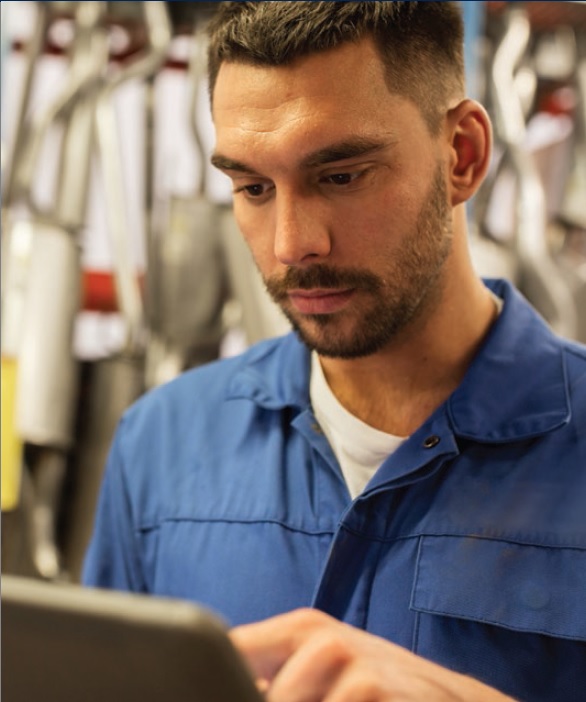Do you think the time has come for more commercially available tribology and lubrication software?
TLT Sounding Board January 2017

© Can Stock Photo / dolgachov
TLT readers are generally open to this concept. Among the many potential advantages they cited are creating industry standards, comparing suppliers’ products and formulating and predicting a lubricant’s physical and chemical results. Readers did note the extreme challenges in creating software sophisticated enough to accurately simulate a lubricant’s actual work conditions. “To be effective,” said one, “such an expert system would need vast amounts of data and real pros to ‘write the code.’” Some readers feel commercially available products already cover this function, while others question whether the return would be worth the investment. Still others fear a boomerang effect. “The people in this industry barely understand the subtle nuances of formulating,” said one. “Software will only make products worse.”
Yes, and it would need to include industry standards as well as approaching changes.
It would give us the ability to compare different suppliers’ products for durability under our working conditions.
If the case is without lubricant, it’s OK. But if it involves lubricants, which have a tendency to change physical property in use, the technology’s not ready.
Yes, it would be helpful to have laboratory verification data for different lubricants. It would enable us to build databases.
The software would need to use engine or field testing data.
Yes, it’s high time. It should focus on formulation development and prediction of a lube’s physical and chemical results.
Commercially available software is already available to help design bearings and machine components. It is not clear what else is needed.
No. The people in this industry barely understand the subtle nuances of formulating. Software will only make products worse.
Purpose?
The key problems are always multifaceted and difficult even to describe. To be effective, such an expert system would need vast amounts of data and real pros to write the code, so to speak. I don’t see any easy payoff nor replacement for the experience and deep skills of our people.
It should form a connection between tribology performance in the lab and on real parts.
Commercially available tribology or lubrication software would enhance the design and optimization process. The software should incorporate basic lubrication models like the Reynolds equation for compressible and incompressible fluids. Furthermore, the model should account for temperature changes since they significantly affect the pressure distribution in the fluid. It is important that software users be aware of the theory of the models on which the software is based on.
Yes. From the user perspective it would be helpful to have a set of standardized tools, things like EHL and contact pressures. These are simple equations rather than models that most users could use with minimum training. At a deeper level, access to journal bearing and EHL simulation software would be useful for those designing equipment.
Major tribological component and lubricant suppliers already have proprietary software calibrated in use today. A potential risk is that general tribology software for stand-alone commercial use may not provide the accuracy or reliability needed by equipment designed by engineers.
Yes, and it should emphasize user friendliness.
APIs or code snippets for integration with analysis software.
I think it is a good idea because it would save time.
Absolutely. Tribology management is about trending, not an actual result. We must have software capable of doing this and highlighting preset limits for the operator to set his actions.
How often does your organization use advanced computer-aided modeling?
Daily
35%
Weekly
3%
Monthly
10%
Rarely
7%
Never
45%
Based on responses sent to 13,000 TLT readers.
What are your organization’s primary uses for modeling techniques? How pleased are you with the results?
Problem solving, optimization.
Currently no, but we’re thinking about using it.
We use for all types of lube-related processes, designs and formulation processes. We’re very pleased with the results.
We use to reduce testing. For some applications the predicted results look good; others need more work.
Whenever you try to streamline an R&D process, bad things happen. We should keep business, marketing and sales guys out of the lab.
Problem solving, optimization of devices.
We use mathematical simulations to speed up prototyping and for creating test products and samples.
For us it reduces testing and accelerates the design process.
We use for optimization of lubrication problems using multi-physical models. We are pleased with the simulation results since they show a good agreement to measurements.
It’s for studying new design or construction in the tire-making process. We want to look for the tendency. I only feel 70% satisfied.
Reduce time! Models help as long as the baseline fluids used in the model creation represent realistic phenomena.
We often include modeling in our programs, and it can be an integral part of our discovery process. We continuously look toward improving our modeling capabilities.
We use for product performance modeling for customer service and value-proposition development. Our models work very well and are time-tested.
Problem solving. We’re very pleased.
Design process and what-if scenarios. Modeling is generally useful, but it requires a clear understanding of the algorithms involved.
Very pleased. We professionally test all of our concepts using modeling from initial design to proof of concept.
If you use modeling, what techniques are most useful for your organization?
Reynolds Equation Solver
9%
Commercial finite element software
23%
Custom outsourced
0%
Custom in-house software
21%
Other
47%
Based on responses sent to 13,000 TLT readers.
Editor’s Note: Sounding Board is based on an email survey of 13,000 TLT readers. Views expressed are those of the respondents and do not reflect the opinions of the Society of Tribologists and Lubrication Engineers. STLE does not vouch for the technical accuracy of opinions expressed in Sounding Board, nor does inclusion of a comment represent an endorsement of the technology by STLE.